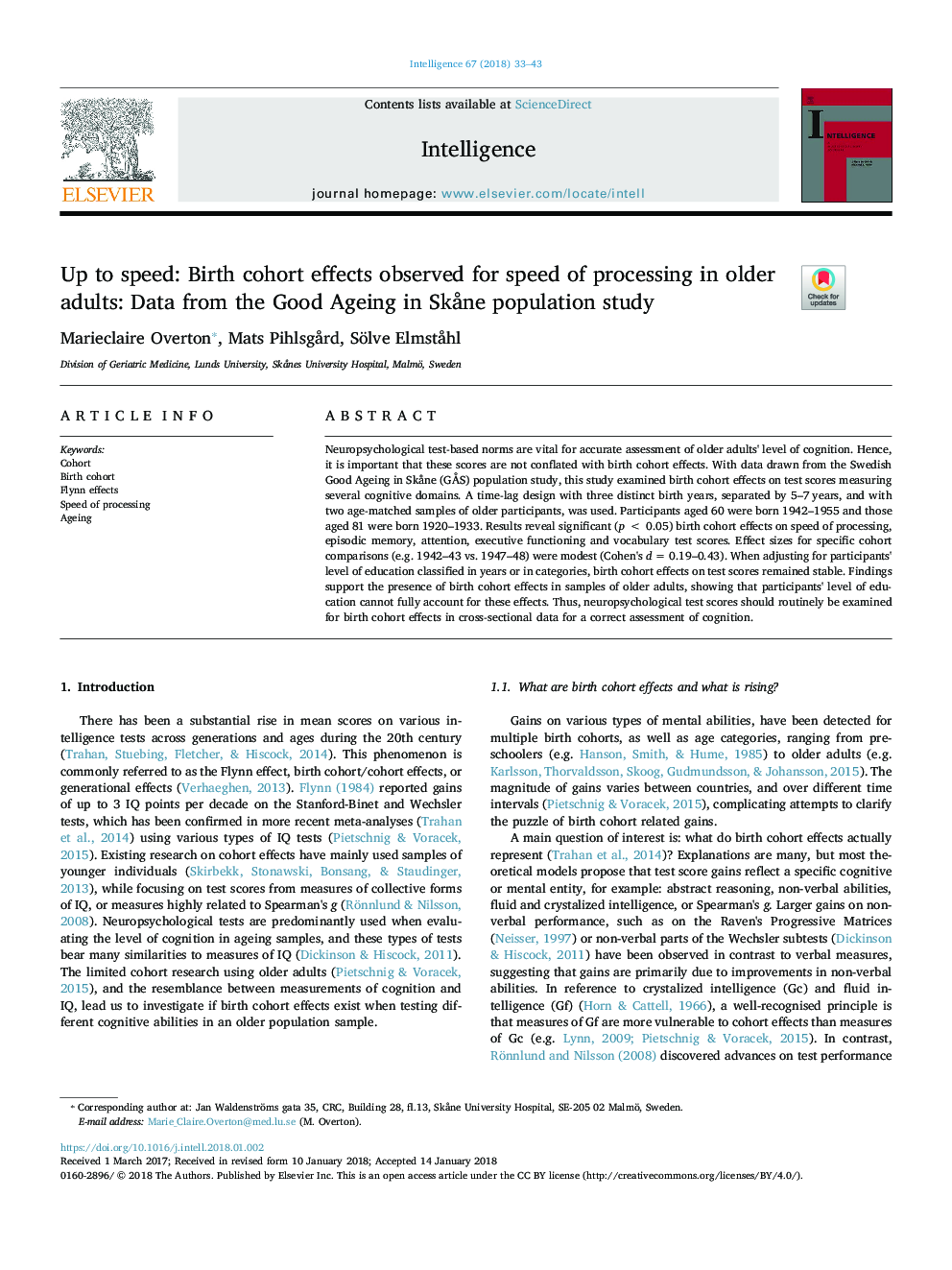| Article ID | Journal | Published Year | Pages | File Type |
|---|---|---|---|---|
| 7292867 | Intelligence | 2018 | 11 Pages |
Abstract
Neuropsychological test-based norms are vital for accurate assessment of older adults' level of cognition. Hence, it is important that these scores are not conflated with birth cohort effects. With data drawn from the Swedish Good Ageing in SkÃ¥ne (GÃ
S) population study, this study examined birth cohort effects on test scores measuring several cognitive domains. A time-lag design with three distinct birth years, separated by 5-7 years, and with two age-matched samples of older participants, was used. Participants aged 60 were born 1942-1955 and those aged 81 were born 1920-1933. Results reveal significant (p < 0.05) birth cohort effects on speed of processing, episodic memory, attention, executive functioning and vocabulary test scores. Effect sizes for specific cohort comparisons (e.g. 1942-43 vs. 1947-48) were modest (Cohen's d = 0.19-0.43). When adjusting for participants' level of education classified in years or in categories, birth cohort effects on test scores remained stable. Findings support the presence of birth cohort effects in samples of older adults, showing that participants' level of education cannot fully account for these effects. Thus, neuropsychological test scores should routinely be examined for birth cohort effects in cross-sectional data for a correct assessment of cognition.
Related Topics
Social Sciences and Humanities
Psychology
Experimental and Cognitive Psychology
Authors
Marieclaire Overton, Mats PihlsgÃ¥rd, Sölve ElmstÃ¥hl,
